
I must begin by first congratulating you for your two most recent awards. In July this year T4 Education bestowed upon you the prestigious Africa Education Medal and even more recently on October 18, you were honoured with the 2023 TIAW World of Difference Award in Canada.
Please tell us a little about yourself and your background. Who is Simi Nwogugu?
Thank you very much for your kind compliments. I am the President and CEO of Junior Achievement (JA) Africa, a leading NGO who brought JA to Nigeria in 1999, leaving her private-sector job at age 24 to start up operations. Today, JA Nigeria has become one of the strongest offices in Africa, reaching 1 million youth across 36 states. Simi embodies the values of JA, believing in the potential of young people to become change agents for Nigeria’s future.
She went back to Harvard Business School in 2002 but continued serving as a board member, bringing programs from Harvard to JA. Simi returned to JA Nigeria as Executive Director in 2016, building digital and out-of-school youth programs, enabling the organization to reach underserved populations in the North during the Boko Haram crisis and the COVID-19 pandemic.
She became President and CEO of JA Africa in 2020, expanding operations to 16 African countries by 2023, with a mission to expand to 20 countries by 2025.
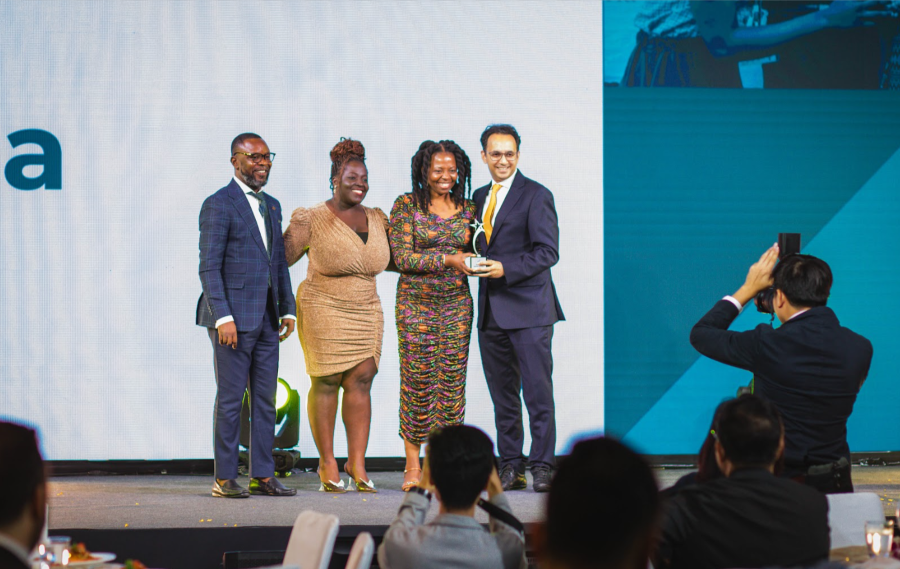
You had a lucrative job at the world-famous investment bank, Goldman Sachs, in New York. What made you leave a job that many people would give their right arm for to bring to Africa, an organization (Junior Achievement) that most Africans at the time had never heard of?
I was fortunate to have a lucrative job at the renowned investment bank Goldman Sachs in New York. However, my decision to leave such a prestigious position was fueled by my deep passion for girls’ education and the impressive work being done by the organization Junior Achievement.
Witnessing the impact of their initiatives and recognizing the transformative power of education, especially for girls in Africa, inspired me to redirect my career toward a cause I felt truly passionate about. While the financial world at Goldman Sachs was challenging and rewarding, the opportunity to contribute to a cause that had the potential to make a lasting difference in the lives of young girls in Africa was an irresistible calling for me.

What is Junior Achievement all about and what necessitated it’s establishment?
Junior Achievement is one of the world’s largest and most impactful youth-serving NGOs, JA delivers hands-on, immersive learning in entrepreneurship, work readiness, and financial health. Delivering more than 15 million student experiences each year in over 100 countries, JA is one of few organizations with the scale, experience, and passion to build a brighter future for the next generation of innovators, entrepreneurs, and leaders. The impact of our real-world training extends beyond individual students. For over 100 years, JA has operated all over the world—including in refugee camps, countries wracked by war and violence, and areas of extreme poverty. By helping youth develop the employment and entrepreneurial tools to find meaningful work and start sustainable companies, JA serves as a conduit for peace and prosperity. Through JA, young people are equipped with the skillset and mindset to build thriving communities.
Aside from the flagship JA LEAD (Leadership, Empowerment Achievement & Development) Camp, what other programmes does JA run?
Yes, JA runs other programs that inspire and prepare young people in the areas of entrepreneurship, financial literacy, and work readiness. In addition to the LEAD Camp, here are some of the other programs that JA typically runs: JA Company Program, ITSTYME, JA Digital Entrepreneurship Education Program, Cha-Ching, Cha-Ching Money Show on TV with Adanna and Emeka, JA Job Shadow, and Social Equity Program.
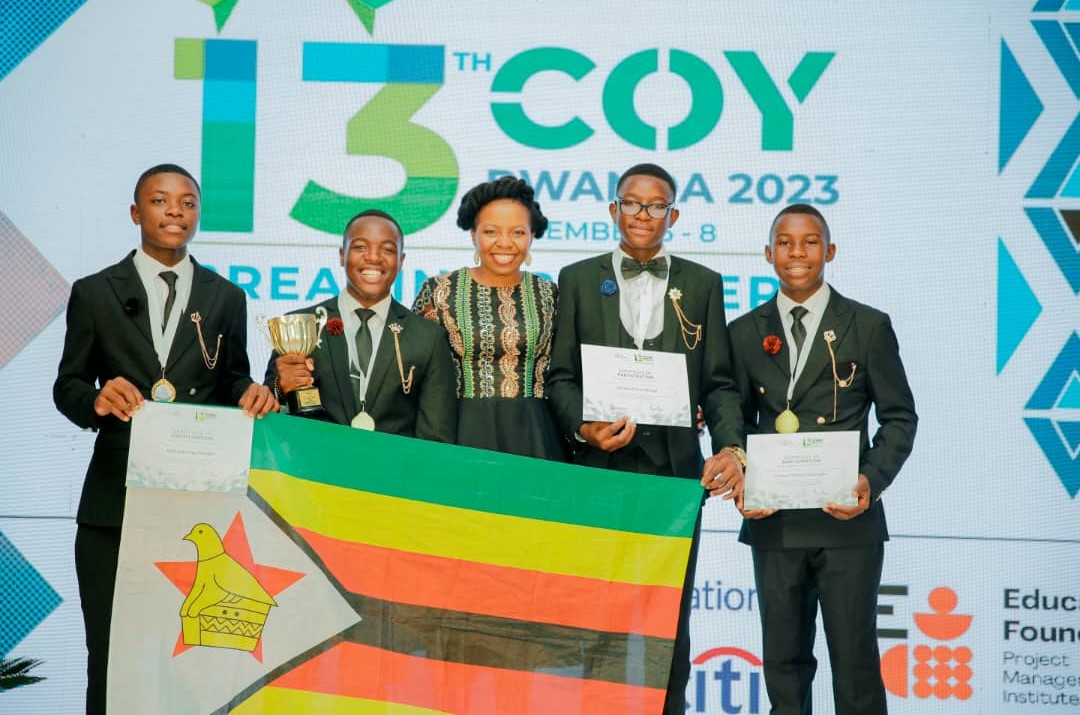
How successful would you say JA Africa has achieved its objectives? Particularly regarding some of the UN SDGs for Africa.
Junior Achievement (JA) Africa has made significant strides in advancing its objectives, particularly in alignment with key United Nations Sustainable Development Goals (SDGs) for the continent. The organization’s impact is evident across various domains, contributing to the overarching sustainable development framework.
In education (SDG 4), JA Africa stands as a beacon for quality education. The organization’s programs, designed to be practical and hands-on, play a crucial role in equipping young individuals with the skills needed for employment and entrepreneurship. By annually reaching 900,000 youths, JA Africa actively contributes to enhancing the quality of education and preparing students for the challenges of an evolving world.
SDG 8, which is focused on decent work and economic growth, resonates with JA Africa’s initiatives. Through innovative initiatives like JA Career Connect, which facilitates alumni linkage to meaningful job opportunities, the organization becomes an agent for fostering economic growth. Additionally, JA Africa’s emphasis on entrepreneurship aligns seamlessly with the goal of promoting sustainable economic development.
Gender equality (SDG 5) takes center stage in JA Africa’s commitment to women’s economic empowerment. Tailored programs such as LEAD Camp and STEM camps for girls showcase a deliberate effort to narrow gender gaps in education and entrepreneurship. By empowering young women, JA Africa contributes to dismantling barriers and fostering inclusivity.
The collaborative spirit of JA Africa, engaging with diverse stakeholders, including governments, businesses, and other organizations, aligns with SDG 17, which emphasizes partnerships for the goals. Through these collaborations, JA Africa amplifies the impact of its initiatives and contributes to a collective effort toward broader sustainable development objectives.

I learned that JA was once nominated for the Nobel Peace Prize? Quite amazing. Tell us a little about that.
JA Worldwide’s nomination for the 2023 Nobel Peace Prize is a testament to the organization’s exceptional work in empowering youth globally. With a rich history spanning 104 years, JA Worldwide has become one of the largest youth-serving NGOs, delivering over 15 million student learning experiences in the last year alone.
The nomination acknowledges JA’s efforts in fostering economic empowerment, job skills, and entrepreneurship among young people, transcending borders, and promoting cross-cultural understanding. The recognition highlights the crucial role of economic empowerment in building thriving communities and fostering global peace, aligning with the organization’s mission to provide opportunities, prosperity, and self-belief to youth in over 100 countries.
How many countries make up JA Africa now, and how many schools in Africa participate? Any plans for more?
JA Africa has a presence in 16 Sub-Saharan countries, and these countries are Burkina Faso, Cameroon, Cote d’Ivoire, Democratic Republic of Congo, Eswatini, Ghana, Kenya, Madagascar, Mauritius, Nigeria, Senegal, South Africa, Tanzania, Uganda, Zimbabwe, and Zambia. Annually, JA Africa reaches more than 3,000 schools across these 16 countries.
JA Africa has plans to expand its reach. By 2025, JA Africa aims to extend its programs to young people in 20 African countries. This expansion reflects the organization’s commitment to its boundless strategy of scaling its impact and providing educational and entrepreneurial opportunities to a broader audience across the continent.
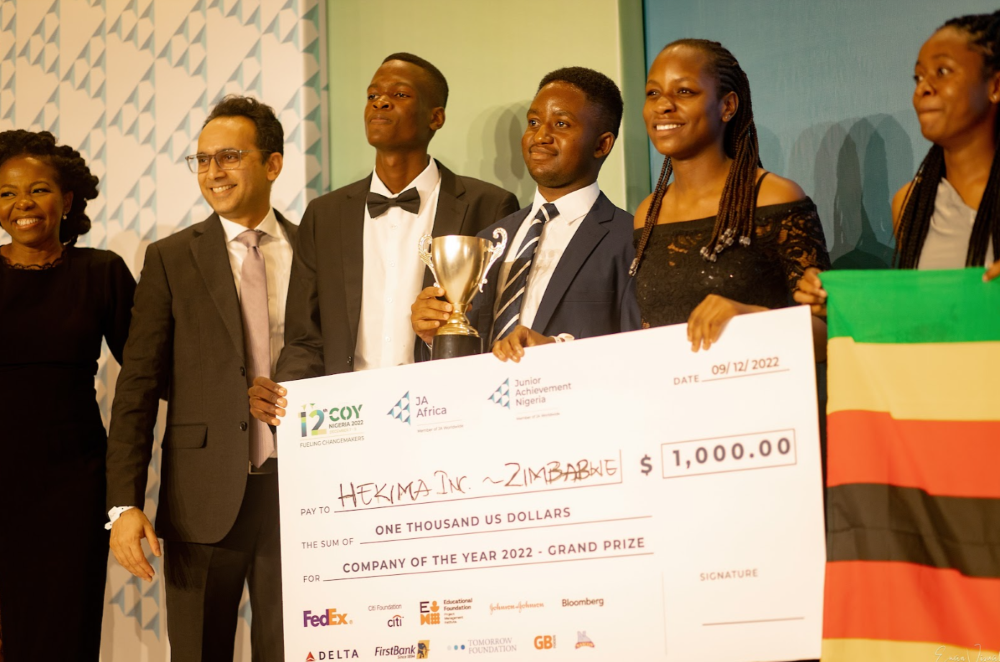
How robust is the JA Africa alumni? Are there any amongst them who have since become household names?
JA Africa has a strong legacy of empowering youth across 16 Sub-Saharan countries through programs focused on entrepreneurship, financial literacy, and leadership. JA Alumni lead social impact organizations and governments, creating change across the continent, not only by creating sustainable citizenship practices within hundreds of companies but also by leading some of the most impactful non-profit organizations in Africa.
Some of JA Africa Alumni are Adenike Adeyemi, Executive Director of FATE Foundation; Femi Taiwo, Former Executive Director of LEAP Africa, now Managing Director of TRACE Academia; Dr. Bosun Tijani, Minister for Communications, Innovation, and Digital Economy, Former CEO, Co-creation Hub (CcHub) + iHub; Iyin Aboyeji, CEO of Future Africa, Co-founder of Flutterwave and Andela.
JA Africa regularly highlights these achievements through its official communications, featuring success stories on its website, annual report, and social media.
Out-of-school children numbers in Nigeria are horrendous at over 20m, and the unemployment rate is equally scary at about 33% generally and around 40% amongst the youth. Is there a part that JA Africa can play to bring these numbers down?
In addition to the primary and secondary education space, are you active at the tertiary and even post-schooling space at all?
In our commitment to tackle the pressing issues of education and unemployment in Nigeria, JA Africa has implemented a range of programs designed to make a meaningful impact at various stages of a young person’s life. We recognize the staggering number of over 20 million out-of-school children and the alarming unemployment rates, especially among the youth, and we’re dedicated to being part of the solution.
One of our initiatives, the ITSTYME program, specifically targets marginalized and out-of-school youth, with a particular emphasis on empowering women. This program aims to equip them with essential skills and opportunities, recognizing the importance of reaching those who may be more vulnerable or face additional challenges in accessing education and employment.
In our ongoing efforts to address unemployment, we’ve recently launched JA Career Connect, a dynamic career-matching platform. This platform is not just a response to the problem but a proactive solution, connecting our alumni to job opportunities globally.
By facilitating these connections, we aim to significantly impact the youth unemployment rates, providing real-world pathways to sustainable employment.
Our commitment doesn’t end with secondary education. We understand the importance of supporting students beyond this stage, and our Venture in Management Program is a testament to that. This program is designed to impart essential management skills, preparing students for the transition to higher education or the workforce.
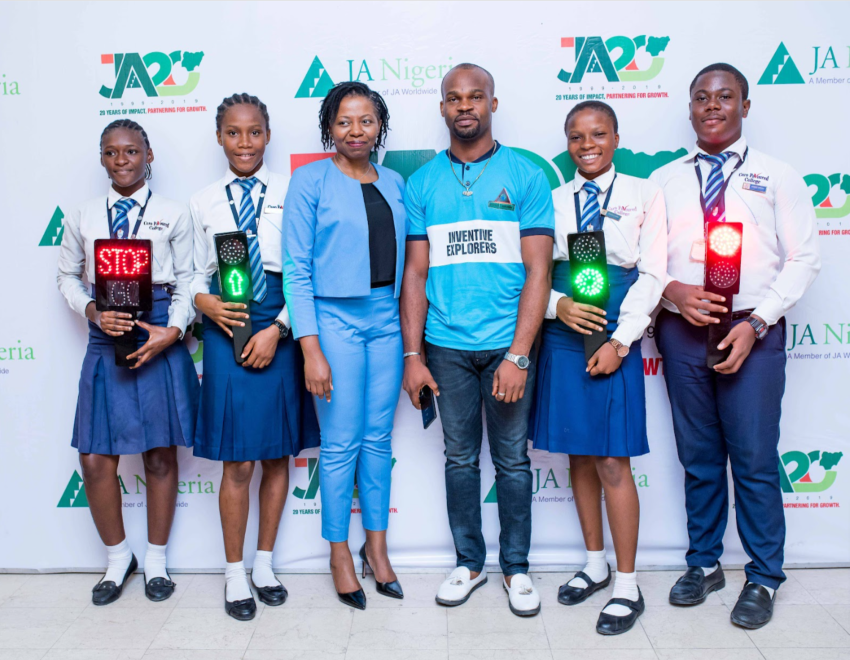
Considering the record number of the African youth population, how does the AfCFTA (Africa Continental Free Trade Agreement) impact the vision and activities of JA Africa across the African continent?
As we look towards the future of Africa with its record youth population, the Africa Continental Free Trade Agreement (AfCFTA) emerges as a transformative force shaping the vision and activities of Junior Achievement (JA) Africa. At the heart of our mission is the belief that empowering youth with essential skills and fostering an entrepreneurial spirit can lead to profound societal change. AfCFTA, with its ambitious goal of creating a single market across the continent, aligns seamlessly with our commitment to preparing the next generation for the challenges and opportunities of a more interconnected African economy.
One of the key impacts of AfCFTA on JA Africa’s vision is the potential for expanded economic opportunities. Our programs are designed to equip young people with the skills necessary to navigate this integrated market. With operations in 16 countries, JA Africa is poised to facilitate cross-border collaborations, nurturing a sense of unity among African youth and fostering a spirit of entrepreneurship that transcends national borders. As the dynamics of the job market evolve under AfCFTA, JA Africa is adapting its career readiness programs to ensure that young people are equipped with the skills and mindset needed for success. We recognize the changing demands of the job market and are committed to preparing the youth to navigate and contribute meaningfully to the emerging economic landscape.
In the context of AfCFTA, our vision extends to cultivating not just job-ready individuals but fostering an entrepreneurial mindset and encouraging innovation. We believe that by instilling these values in the youth, we contribute to the development of a skilled and dynamic African workforce that actively engages in and benefits from the continental free trade agreement. AfCFTA, with its goal of creating a more interconnected and economically vibrant Africa, aligns seamlessly with JA Africa’s mission. We see this agreement as an opportunity to further empower the youth, equipping them with the skills, mindset, and collaborative spirit needed to thrive in a continent that is increasingly becoming a single, integrated market.
How is JA Africa helping in the advancement of education in Africa, considering the multilingual African landscape, for the improvement of work readiness, entrepreneurship and very importantly, citizenship and ethics?
In the vibrant mosaic of Africa’s diverse languages, Junior Achievement (JA) Africa stands as a beacon for transformative education. Our programs are thoughtfully multilingual, ensuring inclusivity and relevance for students across the continent. We bridge the gap between education and the workforce, fostering practical skills tailored to diverse regional needs.
Entrepreneurship education is a guiding principle, equipping youth with local market insights, financial literacy, and an ethical business mindset. Our commitment extends beyond classrooms to community engagement and partnerships, ensuring our programs are deeply rooted in local contexts. Adaptability is our mantra. Continuous learning and assessment keep JA Africa responsive to the dynamic educational landscape, ensuring relevance and impact. In essence, JA Africa’s narrative is one of inclusive, adaptive education—shaping a future where every youth is educated and empowered for a world of challenges and opportunities.

STEM appears to be quite close to the heart of JA and it’s interesting to note that the T4 Education award which you won just a few months ago, has HP and Microsoft as its two partners. What role do you see STEM playing in Africa’s drive for economic development? And what is JA Africa doing to catalyse this?
In the grand tapestry of Africa’s economic development, STEM emerges as the vibrant thread weaving innovation, competitiveness, and progress. Junior Achievement (JA) Africa, holding this vision close, understands the pivotal role STEM plays in shaping the continent’s future and is actively contributing to its integration into education. STEM is not just an acronym but a driving force for Africa’s innovation and global competitiveness. By nurturing a culture of innovation through STEM education, we empower the youth to tackle challenges creatively, giving rise to industries that can stand tall on the global stage. STEM is not just about equations and formulas; it’s about job creation and entrepreneurship. By instilling STEM knowledge in our youth, we are nurturing a generation of entrepreneurs who will drive economic growth, leveraging technology to shape the industries of tomorrow.
Our programs are more than just educational modules; they are innovation incubators. By infusing STEM elements, we provide students with the practical skills to navigate the complexities of a technology-driven future. From innovation challenges to competitions, we create platforms for students to apply STEM knowledge in real-world scenarios, fostering creativity and problem-solving. Digital transformation is at the forefront of the global landscape, and JA Africa recognizes the importance of digital literacy. We incorporate skills development in coding, data analysis, and digital communication, ensuring that our youth embrace and thrive in the digital economy.
JA Africa is renowned for its Company of the Year Competition. Tell us about it. Who are the sponsors? Are there any past winners that have gone on to do notable things?
The Company of the Year (COY) Competition is the pinnacle in Junior Achievement’s (JA) highly acclaimed Company Program®, marking it as Africa’s premier pitch competition for high school youth.
This competition culminates an immersive journey where students learn the ropes of entrepreneurship, from the inception of their business ideas to the execution of fully-fledged companies. Sponsored by a diverse range of corporate partners and industry leaders such as FedEx, Citi Foundation, and Project Management Institute Educational Foundation (PMIEF), the competition serves as a showcase for these student-run companies. Teams present their businesses, products, and strategies to a panel of judges, experts in the field, and business leaders who evaluate their prowess in business planning, financial management, and market viability. Many past winners have achieved notable successes in their entrepreneurial journeys. Hekima Inc, winners of the 2022 JA Africa COY from Zimbabwe, went on to compete against other regional COY winners for the De La Vega Global Entrepreneurship Award and emerged winners in 2023.
Does JA Africa pay any special attention to women’s economic empowerment? If yes, why would you say this has become regarded as critically important?
Junior Achievement (JA) Africa places a significant emphasis on women’s economic empowerment, recognizing the pivotal role that gender equality plays in fostering sustainable economic development. This deliberate focus on empowering women is grounded in recognizing the multifaceted benefits that arise when women are economically empowered. In recent years, there has been a growing acknowledgment of the critical importance of women’s economic empowerment, not only as a matter of social justice but also as an essential driver of overall economic growth. JA Africa understands that empowering women economically is not just a goal but a catalyst for broader positive impacts on families, communities, and entire nations,
JA Africa considers that not less than 50% of its program beneficiaries are young women.
Empowering women economically is crucial because it addresses historical and systemic disparities, fostering a more inclusive and equitable society.
When women are economically empowered, they contribute significantly to poverty reduction, as they become key agents of change in their households and communities. Economic empowerment allows women to provide better education, healthcare, and overall well-being for their families. Women’s economic empowerment enhances the overall productivity and competitiveness of economies. By tapping into the full potential of the female workforce, nations can benefit from a more diverse and skilled labor pool. This, in turn, contributes to increased innovation, resilience, and adaptability in the face of economic challenges. JA Africa recognizes that promoting gender equality in economic opportunities is not just a moral imperative; it is a strategic investment in the long-term prosperity of communities and nations. Through tailored programs and initiatives such as the LEAD Camp for Girls, STEM Camps for Girls, and more, JA Africa seeks to equip young women with the skills, knowledge, and mindset needed to navigate and succeed in the business world.
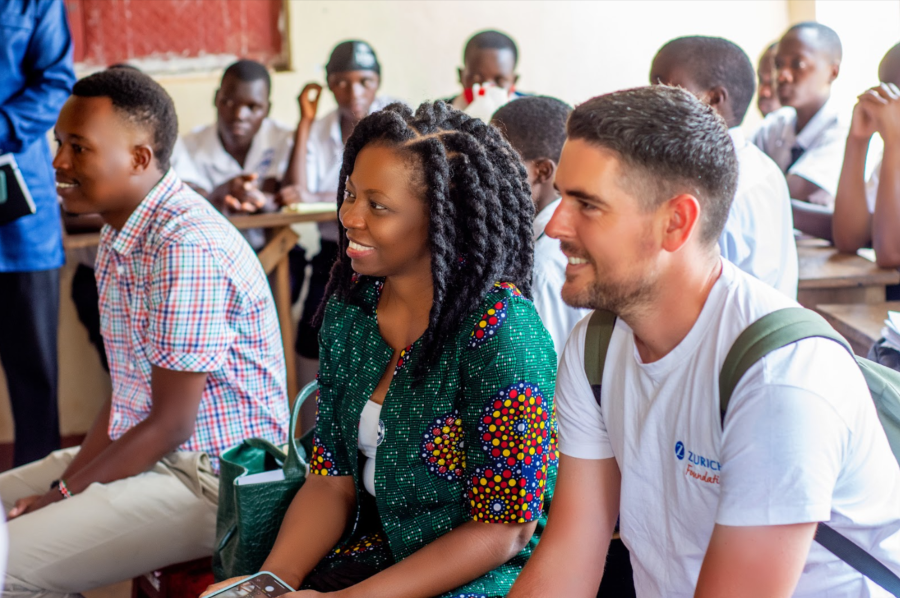
JA Worldwide is reputed to be the largest not-for-profit organization globally, which focus is to ameliorate the fundamental socio-economic challenges that young people face. What would you attribute JA’s success to?
At the heart of Junior Achievement’s unrivaled success is a transformative theory centered on self-efficacy, permeating every facet of its programs. It begins with hands-on skills acquisition, moving beyond theory to instill a sense of capability. Role models, showcasing successful self-efficacy, become powerful catalysts, inspiring participants to envision their success. Practicing optimism becomes a crucial skill, redirecting negative thoughts toward positive ones and fostering resilience. The cycle culminates in a supportive belief system—external affirmations from others who genuinely believe in participants’ potential. This self-efficacy cycle, seamlessly woven into JA’s initiatives, guides participants toward empowerment, resilience, and a steadfast belief in their ability to shape their destinies. JA’s success lies not just in imparting knowledge but in the profound transformation of individuals, equipping them with the mindset to navigate challenges, seize opportunities, and thrive in the real world.
For Simi Nwogugu, what would success look like?
Success is envisioned as a tapestry woven with the transformative impact of JA Africa’s initiatives, touching the lives of countless young individuals across the continent. It’s a vision where the reach and depth of JA’s programs extend to unprecedented scales, leaving an indelible mark on the next generation.
In this vision of success, JA Africa annually empowers over 1 million youth, becoming a beacon of skill development and empowerment. Simi sees success in the practical outcomes of JA Career Connect, where more than 10,000 alumni seamlessly transition into meaningful employment, bridging the gap between education and the workforce.
Geographical expansion becomes a testament to success, as JA Africa establishes its presence in over 20 countries by 2025. This growth signifies not just numerical expansion but the adaptability of JA’s programs to diverse cultural landscapes, ensuring a meaningful impact that resonates across the African continent.
Looking toward the future, Simi envisions success in fulfilling JA Africa’s commitment to gender equality. By reaching and empowering over 1 million black girls by 2050, the organization will become a driving force in narrowing gender gaps and fostering an environment where young women emerge as active participants and leaders in the economic realm.
_____________________________ SIMI NWOGUGU Chief Executive Officer, JA Africa Simi Nwogugu is CEO of Junior Achievement (JA) Africa, part of the Nobel Peace Prize-nominated JA Worldwide, one of the world’s largest youth-serving NGOs that prepares young people for the future of work. Simi was first introduced to JA while working at Goldman Sachs in New York City. Impressed by the organisation, she quit her lucrative job at age 24 to bring JA to Nigeria, where it now reaches more than 100,000 young people annually, before going on to head up JA’s operations across the continent. For 25 years, Nwogugu has been leading JA’s efforts in various capacities as it embarked on a mission to help young people to generate and effectively manage wealth, create jobs for their communities, as well as apply entrepreneurial thinking to the workplace and skills that create sustainable solutions to issues faced within their communities. Her passion for strategy and innovation led to the development of many impactful programmes that are ensuring young Africans have the skillsets and mindset to succeed. With an MBA from Harvard, Simi also serves as President of the governing board of the Harvard Business School Alumni Association of Nigeria (HBSAN), and has been recognized by the school with numerous awards including the Bert King Award for Social Impact presented by the Harvard Business School African-American Alumni Association, and the Africa Education Medal 2023 by T4 Education and HP in collaboration with Microsoft for her dedication to equipping Africa’s youth with skills for future success. She was also recently declared winner of The International Alliance for Women (TIAW) World of Difference Award for her contributions to women’s economic empowerment, a testament to Nwogugu’s dedication and hard work in empowering women and girls across Africa and beyond. She is currently a fellow of the Aspen Institute’s Africa Leadership Initiative for West Africa (ALIWA) where she is pursuing her passion to empower and equip 10 million African girls to build thriving sustainable communities by 2050


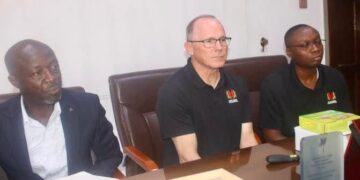































































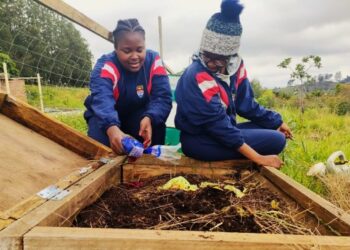


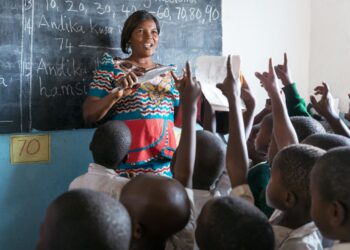

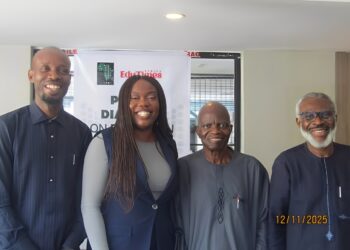








 EduTimes Africa, a product of Education Times Africa, is a magazine publication that aims to lend its support to close the yawning gap in Africa's educational development.
EduTimes Africa, a product of Education Times Africa, is a magazine publication that aims to lend its support to close the yawning gap in Africa's educational development.